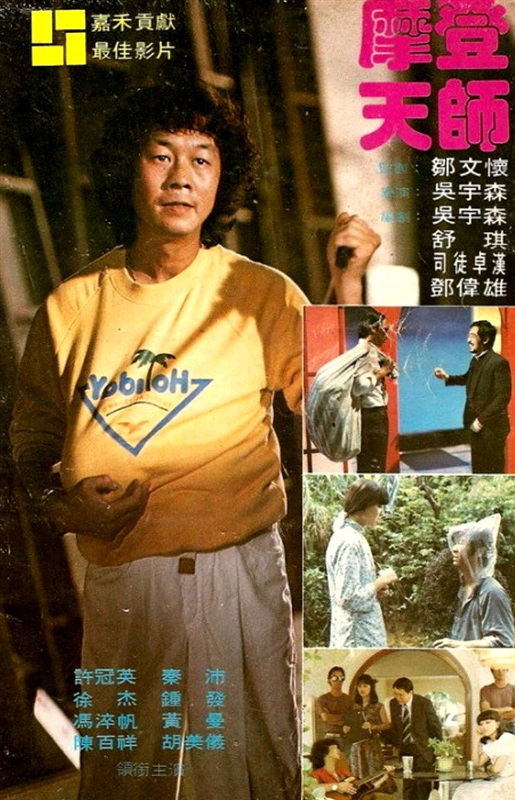To Hell With The Devil (1982)

Somebody at Deltamac must like Ricky Hui a lot, 'cause there's a suspicious number of his movies in the first wave of releases since they acquired the Fortune Star/Media Asia library. Many of these are directed by John Woo, in the days before he met Tsui Hark and his star was not shining quite so bright.
Woo is famous for being a Christian, and this is quite apparent in To Hell With The Devil. It seems that to Woo, Christianity is basically about some powerful and capricious supernatural beings who hate each other, both of whom broadly dislike humans, and that the battle between good and evil is best represented as a video game. Perhaps the utter shallowness of the treatment is simply because the movie is meant to be a frivolous comedy, but part of me suspects that this is really what Woo considers to be a profound statement about his religion!
Stanley Fung and Paul Chun play a failed demon and a failed priest, both of whom are sent back to earth by their respective bosses to prove themselves. They end up in competition over the soul of Ricky Hui, a down and out musician. If we're marking for effort, hell definitely wins this match 'cause most of the movie Stanley Fung dominates the proceedings with various tricks to tempt Ricky to the dark side.
The movie leaps about through what is basically a series of sketches, loosely strung together by this theme. Ricky tries to win the girl and squash the rival whose success he resents, and Stanley uses his magic to help him, but Ricky finds that the gifts of the devil are usually double edged or something.
The movie is clearly a Hong Kong comedy, of the sort that doesn't tend to travel well... there's lots of slapstick and physical humour, little of which makes a favourable impression. Mind you, I don't think local audiences had much time for it either, so perhaps it's not a HK thing, just a lousy thing. There's a few good moments - mainly the bizarre climactic battle, but for most of the movie I was watching the time and wondering when it would all end.
There's little sign here of any of the style that would make John Woo the box office king just a few years later, and I can't help but conclude that Woo's success was more down to who he knew than what he knew (his Hollywood decline also suggests the same). Or maybe it's just that Woo and Comedy are not a good mix!
Crew
| Director | |
|---|---|
| Writer | |
| Producer | |
| Editor | |
| Soundtrack |

